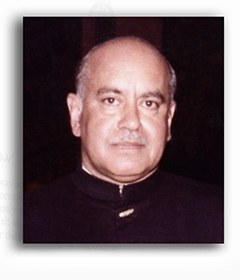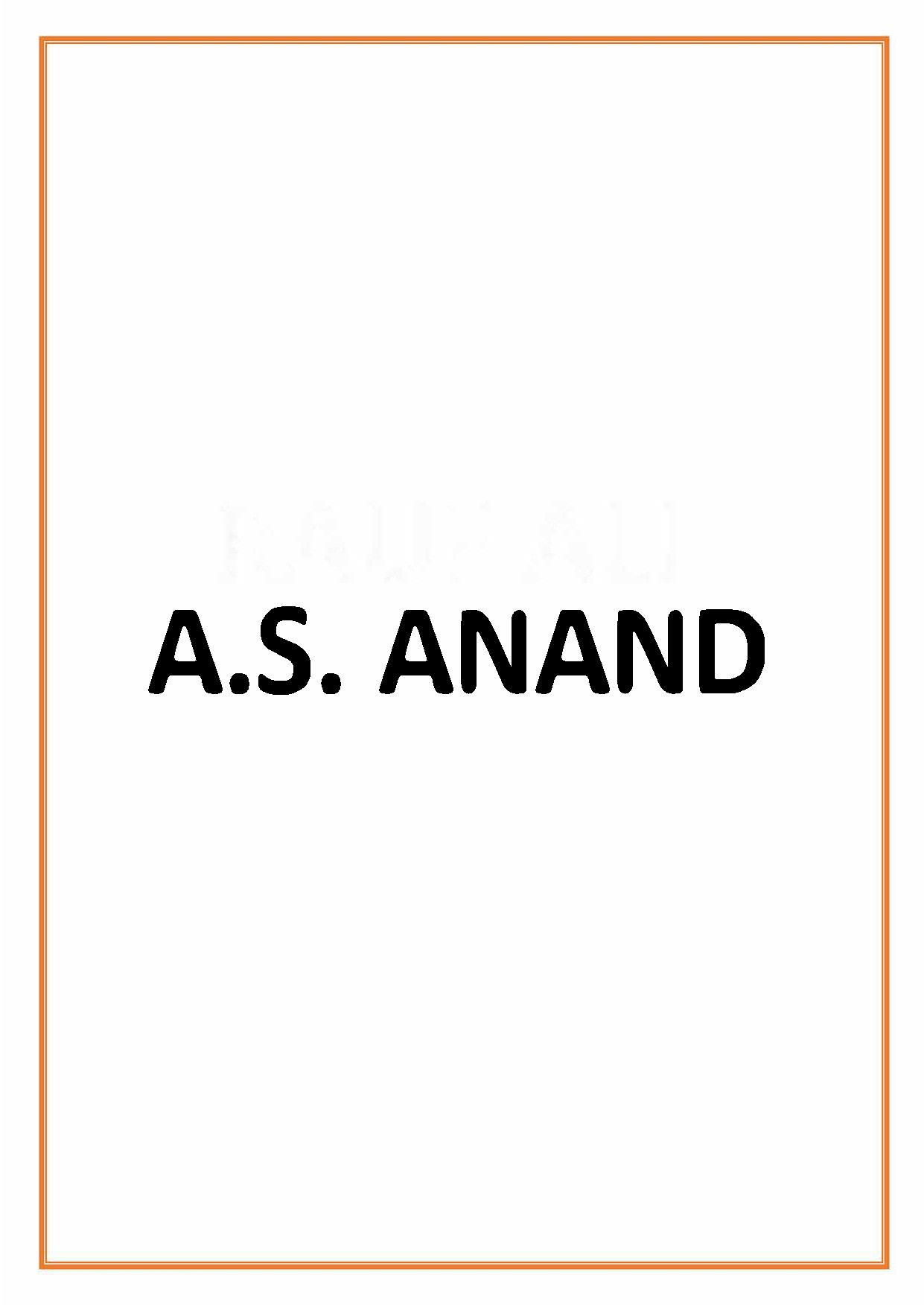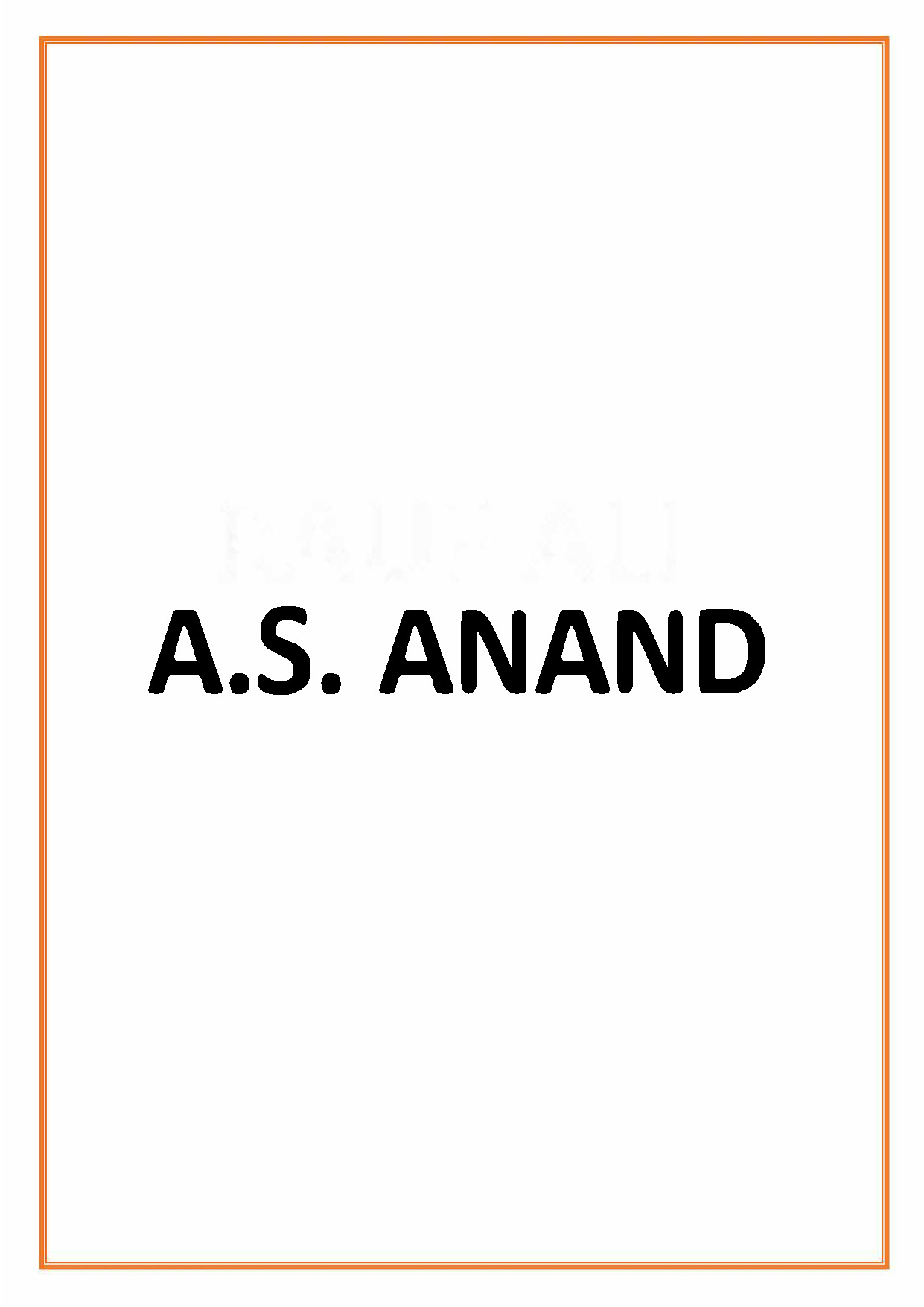Adarsh Sein Anand (b.1936–d.2017), a constitutional expert and an advocate of human rights and civil liberties, was born on 1 November 1936. He received his early education at Jammu and graduated from the Jammu and Kashmir University in 1958. He pursued L.L.B from Lucknow University in 1960 and was awarded a doctorate in Law (Constitutional Law of Commonwealth) from the University of London in 1963. He passed the Bar Exam at the Inner Temple, London in 1964. Thereafter, he practiced in Criminal Law, Constitutional Law and Election Law at the Punjab and Haryana High Court in Chandigarh.
Justice Anand was Additional Judge of Jammu and Kashmir High Court, 1976-1985; Chief Justice, Jammu and Kashmir High Court, 1985-89, and Madras High Court, 1989-1991; Judge, Supreme Court of India, 1991-1998; and Chief Justice of India, 1998-2001.
Justice Anand was awarded an honorary doctorate in Law by Lucknow University in 1996 and was elected the President of the International Institute of Human Rights Society. He was the first Indian to be honoured with a fellowship of the University College, London, 1997.
Justice Anand participated in various national and international conferences, notable among them was the first Appellate Judge Conference at Manila, Philippines (1977); Appellate Judges’ Conference, New Delhi (1984); the Law Conference, New Delhi (1994); 2nd Worldwide Common Law Judiciary Conference at Washington DC, USA (1997) and SAARC Chief Justices’ Conference at Colombo, Sri Lanka (1998).
Justice Anand was the Chairperson of the National Human Rights Commission, 2003-2007, and was also part of a five-member committee set up to examine the safety aspects of the Mullaperiyar Dam in Kerala, 2010.
Apart from the Padma Vibhushan (2008), Justice Anand also received several prestigious awards for his outstanding contribution to the field of judiciary and an unflinching commitment to national progress, human welfare and justice namely, the Shiromani Award - 2002 (2003), Plaque of Honour from the University of Lucknow, 2004, and Dogra Ratan Award for Promotion of Dogri Language, Culture & History, Jammu, 2006. He was also honoured with National Law Day Award by the President of India in 2007.
Justice A.S. Anand has authored The Constitution of Jammu and Kashmir - its Development and Comments (1994) and Justice for Women: Concerns and Expressions (2002).
An advocate of inexpensive and affordable justice to all, Justice A.S. Anand passed away on 1 December 2017.
About the Collection: The papers were donated by Justice A.S. Anand himself in July 2017. The collection provides insights into various aspects of the Indian legal system and constitutional development. The papers mainly comprise his speeches delivered as Chief Justice of India; Judge, Supreme Court of India; Chief Justice, High Court of Jammu & Kashmir, and Tamil Nadu; and as Chairman of National Human Rights Commission. There are also six photo albums containing photographs of his activities between 1997-2007. (Catalogue available)





